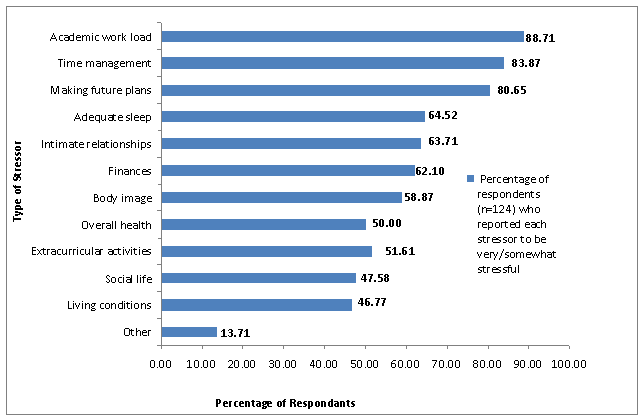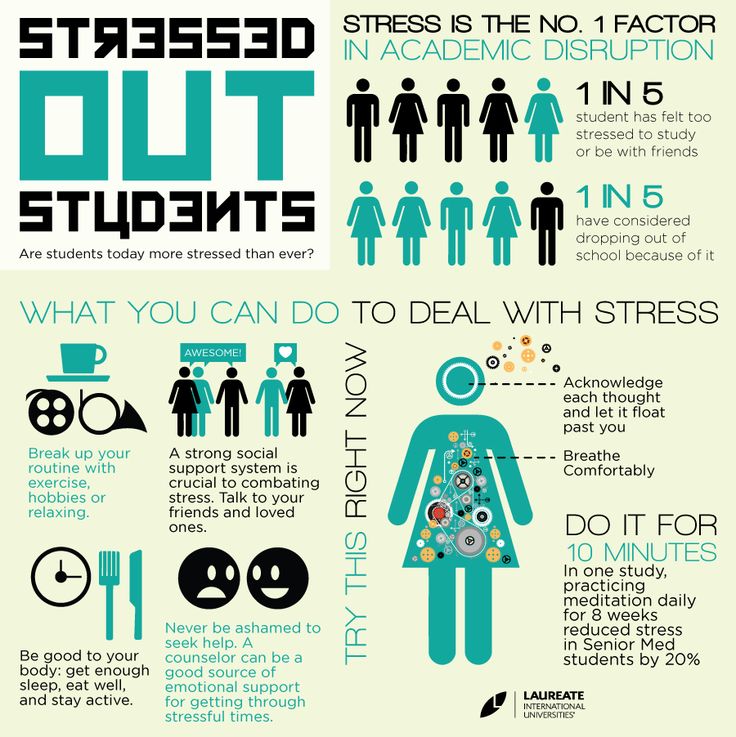Jenni stared at her laptop screen, contemplating the next words to write for her capstone paper. “I think I’ve been sitting here for twenty minutes now,” she says.
Jenni is a Communications and Women & Gender Studies double major, however she also has a passion for mental health.
“I’ve always been concerned about the well-being of others and of myself mentally,” she says. “It’s something I take very seriously because students don’t take care of themselves enough.
Every student in college can agree that at some point they have been or will be stressed: from an important exam to a group project to a research paper, every student has experienced some level of pressure in school. It can be easy to point out the cause of stress, like previously mentioned.
Studies show that four in five college students say that they sometimes or frequently experience stress on a daily basis. So what are the contributing factors to their anxiety? One study puts the stressors of college students into four main categories: academic, financial, time or health related, and self-imposed (Misra & McKean, 1). Within these categories, students experience specific stressors, such as studying for exams and having to learn a large amount of content in a small amount of time. Those would easily fall under the academic category.
Other stressors aren’t specifically related to school or a student’s academics, so other people may not realize or understand why students feel stressed. This can include emotional and social issues that students believe they cannot share with anyone.
Jenni sheds some light on this topic. “Living in a house full of girls, we talk about what stresses us out all the time," she says. "And yeah, a lot of it has to do with school, but it’s mostly about social stuff, like who is getting on our nerves or relationship problems.”
This may seem like a miniscule problem to most, but it all adds up. For students, a combination of stressors is what leads them to their breaking point. Further, many students don’t have the best habits because of their busy schedules, and this can also contribute to a mental breakdown.
One study found “‘more stressed’ students to be more likely to exercise infrequently and to eat junk food, while ‘less stressed’ students were more likely to have healthy habits, such as eating nutritious foods.”
Despite how prevalent this stress may be, there are ways to combat it to make it easier for students to get through the semester in one piece. It’s more important to look at how we can possibly prevent it or lessen it for students. One possible solution is a student’s involvement in extracurricular activities at their school. Whether it’s Greek life, student government, or something more relaxed, pretty much every student can find their place.
Jenni seeks solace in her sorority. “Last year, I was given the opportunity to be the Mental Health Awareness chair for my chapter and it was the greatest learning experience I’ve had.”
Jenni was in charge of programming that gave her sisters the opportunity to de-stress, talk about what was bothering them, and create activities to get everyone to know each other a little more.
“Once I got the position and started doing it, I knew it was something I would hold close to my heart. Every student needs some kind of stress relief, whether that’s working out or reading. For me, it was helping others with their mental health.”
Students have plenty of opportunities to explore their interests outside of academics. Not only can they find something they’re passionate about, but it’s also a chance for them to relieve stress.
“A lot of my friends like to work out as a way to relieve stress, which I love,” Jenni says. “It’s just a great way to get your aggression out in such a healthy way.”
Another student, Karli, likes to turn to her friends when she’s stressed. “I’ve met so many people that I would’ve never met if I didn’t join Greek life,” she says. “And some of these people have become my closest friends who I know I can always turn to if I’m feeling down.”
College students are bound to face stress in one form or another. While you can't always prevent it from happening, you can help to ease it so it doesn't get in your way.
Extracurriculars are an important part of a student's life in college, and they can help students reach their full potential while also giving them a break from their studies.
After all, college is about finding your passion. What better way than to try new things?




Leave a comment
You must be logged in to post a comment.